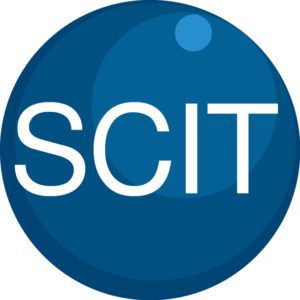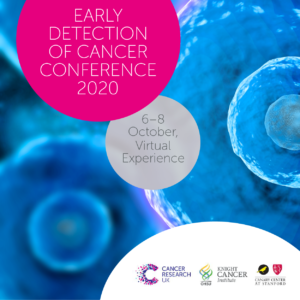
PHIND Seminar Series: The Behaviorome in Precision Medicine
Kevin Schulman, M.D.
Professor of Medicine (Hospital Medicine) and, by courtesy, of Economics a the Graduate School of Business
Stanford University
12:00pm – 1:00pm Seminar & Discussion
RSVP here: https://www.onlineregistrationcenter.com/KevinSchulman
Meeting URL: https://stanford.zoom.us/j/514973612
Dial: +1 650 724 9799 (US, Canada, Caribbean Toll) or +1 833 302 1536 (US, Canada, Caribbean Toll Free)
Meeting ID: 514 973 612
ABSTRACT
The revolution in biomedical technology that is allowing us to develop the concept of precision medicine has a fatal flaw. Medical science has focused on risk prediction in the hopes of using risk information to influence health behaviors. However, there is little evidence to support the notion that risk information alone influences individual behavior at scale. Concurrent with the development of the field of precision medicine is an even larger revolution in understanding of the behavior of populations using digital technology. Marketing, the science underlying these advances, offers tools and insights to help guide our understanding of how to translate risk information into behavior change. To date, marketing has been used for mass-customization of products and services outside of clinical medicine. For example, each of us has the opportunity to enjoy streaming video programs that suit our tastes and desires. This delightful consumer experience developed in an iterative fashion based on tight linkages between prediction and behavior. In this case, data are used to develop population segments that are likely to respond similarly to movie suggestions. In this talk, we’ll discuss how a better understanding of behavior in the health care realm, the Behaviorome, will help solve the last mile problem of Precision Medicine.
ABOUT
Dr. Schulman serves as Professor of Medicine, Associate Chair of Business Development and Strategy in the Department of Medicine, Director of Industry Partnerships and Education for the Clinical Excellence Research Center (CERC) at the Stanford University School of Medicine, and, by courtesy, Professor of Economics at Stanford’s Graduate School of Business.
Dr. Schulman’s research interests include organizational innovation in health care, health care policy and health economics. With over 300 original articles, 90 review articles/commentaries, and 40 case studies/book chapters, Kevin Schulman has had a broad impact on health policy (h-index = 61). His peer-reviewed articles have appeared in the New England Journal of Medicine, JAMA, and Annals of Internal Medicine. He is a member of the editorial/advisory boards of the American Heart Journal, Health Policy, Management and Innovation (www.HMPI.Org), and Senior Associate Editor of Health Services Research.
At Duke’s Fuqua School of Business, Dr. Schulman oversaw the growth of the health sector management program, graduating almost 1500 students. He is the Founding Director of the unique Master of Management in Clinical Informatics program (MMCi), originally offered through the Fuqua School of Business and now housed in the Duke University School of Medicine. He has served as a Visiting Professor in General Management at Harvard Business School from 2013-2016, and a visiting scholar from 2016-2018. At Stanford, he teaches a course on Health IT and Strategy at the GSB.
He is the Founding President of the Business School Alliance for Health Management (http://www.BAHM-Alliance.Org), which is a consortium of the leading business schools offering health management programs.
He is an elected member of ASCI and AAP.
Hosted by: Sanjiv Sam Gambhir, M.D., Ph.D.
Sponsored by the PHIND Center and the Department of Radiology

“Tumor-Immune Interactions in TNBC Brain Metastases”
Maxine Umeh Garcia, PhD
ABSTRACT: It is estimated that metastasis is responsible for 90% of cancer deaths, with 1 in every 2 advanced staged triple-negative breast cancer patients developing brain metastases – surviving as little as 4.9 months after metastatic diagnosis. My project hypothesizes that the spatial architecture of the tumor microenvironment reflects distinct tumor-immune interactions that are driven by receptor-ligand pairing; and that these interactions not only impact tumor progression in the brain, but also prime the immune system (early on) to be tolerant of disseminated cancer cells permitting brain metastases. The main goal of my project is to build a model that recapitulates tumor-immune interactions in brain-metastatic triple-negative breast cancer, and use this model to identify novel druggable targets to improve survival outcomes in patients with devastating brain metastases.
“Classification of Malignant and Benign Peripheral Nerve Sheath Tumors With An Open Source Feature Selection Platform”
Michael Zhang, MD
ABSTRACT: Radiographic differentiation of malignant peripheral nerve sheath tumors (MPNSTs) from benign PNSTs is a diagnostic challenge. The former is associated with a five-year survival rate of 30-50%, and definitive management requires gross total surgical with wide negative margins in areas of sensitive neurologic function. This presentation describes a radiomics approach to pre-operatively identifying a diagnosis, thereby possibly avoiding surgical complexity and debilitating symptoms. Using an open-source, feature extraction platform and machine learning, we produce a radiographic signature for MPNSTs based on routine MRI.

PHIND Seminar Series: Moving Magnetic Resonance Imaging Towards a Low-Cost High-Value Medical Imaging Modality
Akshay Chaudhari, Ph.D.
Instructor
Department of Radiology
Stanford University
12:00pm – 1:00pm Seminar & Discussion
RSVP Here: https://www.onlineregistrationcenter.com/AChaudhari
The seminar will be available via a zoom live stream.
Meeting URL: https://stanford.zoom.us/j/257831873
Dial: +1 650 724 9799 (US, Canada, Caribbean Toll) or +1 833 302 1536 (US, Canada, Caribbean Toll Free)
Meeting ID: 257 831 873
ABSTRACT
Magnetic Resonance Imaging (MRI) is a medical imaging modality that offers exquisite resolution and soft-tissue contrast. It is an integral component in diagnostic radiology as well as in basic science research studies due its sensitivity in detecting subtle variations in tissue structure. While MRI can provide a rich source of information, typical acquisition times of 30-40 minutes can limit further widespread use, increase costs, and diminish the patient experience. Moreover, the high-resolution and multi-dimensional MRI datasets can also cause a challenge for efficient and accurate image interpretation. In this talk, through specific examples in musculoskeletal MRI, I will cover recent advances in MRI aided by classical engineering techniques as well as deep learning to substantially reduce the duration of MRI exams and for subsequent image analysis. I will describe how these efforts are helping change the paradigm of MRI by reducing costs and increasing efficiency.
ABOUT
Dr. Akshay Chaudhari is an Instructor in the Radiological Sciences Lab (RSL) and Precision Health and Integrated Diagnostics (PHIND) sections in department of Radiology who works at the interface of radiology and artificial intelligence. His research interests include developing efficient and safer medical imaging acquisition techniques, repeatable and accurate image analysis tools, and on multi-modality sensor fusion. He graduated with honors with a B.S. in Bioengineering from the University of California San Diego in 2012 and completed his Ph.D. from Stanford Bioengineering in 2017 focusing on novel MRI methods to perform rapid quantitative musculoskeletal imaging. Dr Chaudhari received the National Science Foundation Graduate Research Fellowship, the Whitaker Fellowship, and the Siebel Fellowship to support his doctoral research. Dr. Chaudhari is the winner of the ISMRM W.S. Moore Young Investigator Award, and has won 6 additional young investigator awards for his work on advanced medical imaging acquisition and analysis techniques, and is a Junior Fellow of the ISMRM.
Hosted by: Sanjiv Sam Gambhir, M.D., Ph.D.
Sponsored by the PHIND Center and the Department of Radiology

CEDSS: “Multicancer detection of early-stage cancers with simultaneous tissue localization using a plasma cfDNA-based targeted methylation assay”
Eric Fung, M.D., Ph.D.
Senior Medical Director
GRAIL, Inc.
Please see zoom details below:
Meeting URL: https://stanford.zoom.us/j/230531527
Dial: +1 650 724 9799 (US, Canada, Caribbean Toll) or +1 833 302 1536 (US, Canada, Caribbean Toll Free)
Meeting ID: 230 531 527
ABOUT
Dr. Eric Fung is Vice President, Clinical Development at GRAIL, where he leads several clinical development programs in support of the development of a blood-based multi-cancer detection test. Dr. Fung has previously held clinical development and R&D leadership roles at Affymetrix, Vermillion, Ciphergen, and Roche Molecular Diagnostics. Dr. Fung has led clinical trials leading to FDA clearance of multiple IVD products. Dr. Fung received his MD, PhD from the Johns Hopkins University School of Medicine.
Hosted by: Sanjiv Sam Gambhir, M.D., Ph.D.
Sponsored by the Canary Center & the Department of Radiology
Stanford University – School of Medicine

PHIND Seminar Series
11:00-11:30 AM | Dr. Anoop Rao, M.D., M.S.
“Wearable Sensing for Neonates”
Clinical Instructor, Pediatrics (Neonatology)
Lucile Packard Children’s Hospital
Stanford University School of Medicine
11:30-12:00 PM | Dr. Eric Dy, Ph.D.
“Crowdsourced data and machine learning to design the future of prenatal care”
Co-founder and CEO
Bloomlife
12:00pm – 1:00pm Seminar & Discussion
RSVP Here: https://www.onlineregistrationcenter.com/PHIND061620
This seminar will be available in person and via a Zoom live stream.
Meeting URL: https://stanford.zoom.us/j/92848236311
Dial: +1 650 724 9799 or +1 833 302 1536
Meeting ID: 928 4823 6311
Dr. Anoop Rao Bio
Anoop Rao is a Clinical Instructor in Pediatrics (Division of Neonatology) at the Lucile Packard Children’s Hospital. After completing early medical training in India, he obtained his MS from MIT, and completed clinical training in Pediatrics from Columbia and fellowships in Neonatal Critical Care from Stanford and Biomedical Informatics from Harvard. He spent over 5 years at AgaMatrix, a startup focused on developing high-accuracy blood glucose meters.
At Stanford, his research is on contact and non-contact monitoring of infants. Anoop collaborates extensively with industry and is actively supported by NIH/Maternal and Child Health Research Institute.
Dr. Eric Dy Bio
Eric Dy, PhD is co-founder and CEO of Bloomlife, a women’s health company designing remote prenatal care solutions to improve the health of women and babies. Eric brings unique perspective on the opportunities and challenges in emerging healthcare technologies and delivery models informed by multidisciplinary technical expertise leading business development for Europe’s leading R&D institute, imec. Eric earned his BSc in Bioengineering from Cornell and his MSc and PhD in Biomedical Engineering from UCLA. Bloomlife has been recognized for their pioneering work winning Fast Company World Changing Ideas, Johnson & Johnson Quickfire Challenge, Richard Branson’s Extreme Tech Challenge, MedTech Innovator Award, and speaking at the White House Precision Public Health Summit.
Dr. Eric Dy Abstract
The period from conception through the first 1000 days of life are the most critical for lifelong health and development, yet too often we are failing women and babies at this time. High risk pregnancies are on the rise, access to care is increasingly a problem, and pregnancy complications such as preterm birth now affect 1 in 10 babies. Despite these growing challenges, the way we deliver prenatal care has not fundamentally changed in over 60 years. We need smarter tools, better data, and scalable solutions to improve the health of moms and babies globally.
In this talk Bloomlife co-founder and CEO will share their strategy for designing the future of prenatal care. He will discuss how clinical grade wearables, in the hands of mom, has helped create the largest dataset on pregnancy in the world, and how AI applied to this dataset is seeding breakthrough screening and diagnostic tools to help solve global maternal health issues including preterm birth.
Hosted by: Sanjiv Sam Gambhir, M.D., Ph.D.
Sponsored by: PHIND Center, Department of Radiology and eWEAR Initiative

PHIND Seminar Series: What is in your sweat and what can it mean for health and disease?
11:00 AM – 12:00 PM: Seminar & Discussion
RSVP: https://www.onlineregistrationcenter.com/VShankar
Presenter:
Vishnu Shankar, M.S.
Department of Chemistry
Stanford University
Principal Investigators:
Michael Snyder, Ph.D.
Stanford W. Ascherman, MD, FACS Professor in Genetics
Stanford University
Robert Tibshirani, Ph.D.
Professor of Biomedical Data Science and of Statistics
Stanford University
Richard Zare, Ph.D.
Marguerite Blake Wilbur Professor in Natural Science and Professor, by courtesy, of Physics
Stanford University
Location
Webinar URL: https://stanford.zoom.us/s/99817512229?pwd=QitCTjRXMEdBTWZyd29MTHYyNU5Xdz09
Dial: +1 650 724 9799 or +1 833 302 1536
Webinar ID: 998 1751 2229
Password: 489011
ABSTRACT
Sweat is a complex fluid known to be rich in electrolytes, small molecules, and fatty acids. Although adults can sweat up to 10 liters per day, little is still known about the chemical composition of sweat, how this changes, and what are its implications for health and disease. We demonstrate a powerful approach to help elucidate this link, where collecting samples simply requires swabbing a glass slide across one’s forehead in less than 30 seconds. Using the combination of desorption electrospray ionization mass spectrometry and statistical machine learning, our approach can successfully detect over 10,000 metabolites in sweat and identify metabolic changes in the sweat profile related to gender, age, and disease. As an example, we demonstrate in a cohort of 65 subjects the possibility of using just a few metabolites detected in sweat to successfully identify patients with renal disease. More generally, our approach suggests the possibility of using the sweat profile to non-invasively assess individual risk for metabolic diseases in the theme of “Precision Medicine.”
ABOUT VISHNU SHANKAR
Vishnu Shankar recently graduated with his master’s degree in computer science, with a specialization in artificial intelligence from Stanford University. He completed his bachelor’s degree with honors in mathematical and computational sciences in 2018, also at Stanford, with his senior thesis on Bayesian networks for incorporating effect modifiers in meta-analysis. In addition, his background spans biology, mathematics, chemistry, statistics, operations research, physics, and computing. Vishnu has published 6 papers and 3 articles in fields including protein structural prediction, comparison of clinical guidelines cost-effectiveness in type 2 diabetes, development of programs to combat mental illness, cancer diagnosis with analytical chemistry and machine learning, and related areas. He is also the founder of the CARES organization to support peer student wellness at college campuses, for which he won the Asoka Youth Changemaker award sponsored by Boehringer Ingelheim. Vishnu has enthusiastically pursued science since his middle school days and has worked on demonstrating the possibilities of DNA computing, simulating protein folding, studying the genetic modifications in fruits and vegetables, and more. He has been recognized for his scientific research as an Intel Science Talent finalist, Google Science Fair Regional finalist, recipient of the American Institute of Aeronautics and Astronautics Excellence award for his work on epidemiology modeling. Vishnu has interned at Caltech and Genentech, where he applied experimental techniques to purify and study protein behavior including dialysis, titration, chromatography for early stage drug development. He was also selected as one of the two high school students to represent the western US Confucius Institute in Student Leaders Exchange Program in China as a non-native Mandarin speaker.
Hosted by: Sanjiv Sam Gambhir, M.D., Ph.D.
Sponsored by the PHIND Center and the Department of Radiology

PHIND Seminar Series: Identifying Fibroblasts Subtypes Contributing to the Progression of Preinvasive to Invasive Lung Adenocarcinoma
Sylvia Plevritis, Ph.D.
Professor of Biomedical Data Science and of Radiology
Integrative Biomedical Imaging Informatics at Stanford
Stanford University
Location
Webinar URL: https://stanford.zoom.us/s/93945120934?pwd=a29GNjFCUzBtWjRsbFdnUnVUOTMzUT09
Dial: +1 650 724 9799 or +1 833 302 1536
Webinar ID: 939 4512 0934
Password: 767148
11:00am – 12:00pm Seminar & Discussion
RSVP: https://www.onlineregistrationcenter.com/SPlevritis
ABOUT
Dr. Sylvia K. Plevritis is Professor and Chair of Biomedical Data Science, Professor of Radiology at Stanford University and Program Director of the Stanford Biomedical Informatics Graduate Training Program. Dr. Plevritis leads a computational biology cancer research program that bridges genomics, imaging and population sciences to decipher properties of cancer progression and treatment response. Dr. Plevritis received her Ph.D. in Electrical Engineering and M.S. in Health Services Research, both from Stanford University, with a focus on cancer imaging physics and modeling cancer outcomes, respectively. She has had a primary authorship role on over 100 scientific cancer-related articles. She is a fellow of the American Institute for Medical and Biological Engineering (AIMBE) and Distinguished Investigator in the Academy of Radiology Research. She serves on the NCI Board of Scientific Advisors, the Program Leadership Committee of the Stanford Cancer Institute and the Leadership Council of the Stanford Bio-X Program. Dr. Plevritis has served on numerous NIH study sections, chaired scientific programs for the several professional societies including the American Association for Cancer Research (AACR) and presented keynote lectures across multiple scales of computational cancer biology. Currently, she is the Program Director of the Stanford Center in Cancer Systems Biology (CCSB) and has been a Principal Investigator with the NCI Cancer Intervention Surveillance Network (CISNET) for over fifteen years. She has served as Program Director of the Stanford Cancer Systems Biology Scholars Program (CSBS), and co-Division Chief of Integrative Biomedical Imaging Informatics at Stanford (IBIIS).
Sponsored by the PHIND Center and the Department of Radiology

PHIND Seminar Series: Maintaining Competitive Advantage through Intellectual Capital
Soody Tronson, M.S., J.D.
Founder
Presque
Location & Timing
11:00am – 12:00pm Seminar & Discussion
Webinar URL: https://stanford.zoom.us/s/98817009379?pwd=U21pYnpCTUlxY3U2TEh4RmhvMXpvQT09
Dial: +1 650 724 9799 or +1 833 302 1536
Webinar ID: 988 1700 9379
Password: 767148
RSVP: https://www.onlineregistrationcenter.com/STronson
ABSTRACT
Digital health has provided a range of solutions, including health and wellness-related management, machine learning algorithms for pattern recognition, AI for genetic analysis, AI-enhanced clinical decision making, and virtual doctors that use AI for patient intake triage. Intellectual property can play an important role in providing a competitive advantage in the digital health industry. We will explore opportunities and challenges for protecting digital health technologies during the program, including patent eligibility challenges and the use of trade secrets.
ABOUT SOODY TRONSON
Soody Tronson is Founding Managing Counsel at STLG Law Firm, counseling domestic and international clients in IP and technology transactions in a wide range of technologies. In 2016 she formed, Presque, a company developing a line of medical devices for mothers and infants.
Soody has over 25 years of operational experience in technology, business, management, and law in start-up and fortune 100 companies, including Schering Plough Pharmaceuticals, Hewlett-Packard Co., Avantec Vascular, and the law firms of HellerEhrman and Townsend and Townsend.
Soody serves in board and leadership capacities with several organizations including the Association of Women in Science STEM to Market national accelerator; Licensing Executives Society USA/Canada, California Lawyers Association, and the Palo Alto Area Bar Association. Soody is a Commissioner with the city of Menlo Park; and an active hands-on volunteer with several civic organizations including Defy Ventures, an entrepreneurship training program for currently and formerly incarcerated. Soody has instructed courses in IP, licensing, and entrepreneurship at the University of California, Stanford University and European institutions. She is the co-author of the book “Women Securing the Future with TIPPSS for IoT: Trust, Identity, Privacy, Protection, Safety, Security for the Internet of Things.”
Hosted by: Garry Gold, MD
Sponsored by the PHIND Center and the Department of Radiology

Cancer Research UK, OHSU Knight Cancer Institute and the Canary Center at Stanford, present the Early Detection of Cancer Conference series. The annual Conference brings together experts in early detection from multiple disciplines to share ground breaking research and progress in the field.
The Conference is part of a long-term commitment to invest in early detection research, to understand the biology behind early stage cancers, find new detection and screening methods, and enhance uptake and accuracy of screening.
The 2020 conference will take place October 6-8 virtually.
Cancer Research UK, OHSU Knight Cancer Institute and the Canary Center at Stanford, have been closely monitoring developments relating to the coronavirus (COVID-19) outbreak and reviewing guidance from government bodies. After careful consideration, we have made the decision to convert the Early Detection of Cancer Conference 2020 to a virtual conference, instead of the scheduled in-person conference on October 6-8 in London, UK.
For more information visit the website: http://earlydetectionresearch.com/

CEDSS: “The Origins and Detection of Lethal Prostate Cancer”
Paul Boutros, Ph.D., M.B.A.
Director, Cancer Data Sciences
UCLA
Please see zoom details below:
Meeting URL: https://stanford.zoom.us/s/93515779500
Dial: +1 650 724 9799 or +1 833 302 1536
Meeting ID: 935 1577 9500
Meeting Passcode: 767148
ABOUT
Boutros earned his B.Sc. degree from the University of Waterloo in Chemistry in 2004, and his Ph.D. degree from the University of Toronto, Canada, in Medical Biophysics in 2008. At Toronto, he also earned an executive M.B.A. from the Rothman School of Management. In 2008, Boutros started his independent research career at the Ontario Institute for Cancer Research first as a fellow (2008–2010) and then as principal investigator (2010–2018). He moved to California to join the UCLA faculty in 2018.
Hosted by: Utkan Demirci, Ph.D.
Sponsored by the Canary Center & the Department of Radiology
Stanford University – School of Medicine